
Culture China
10:52, 20-Apr-2019
Reporter's diary: Snow, screams and a slice of history at BJIFF Carnival
Nadim Diab
01:42
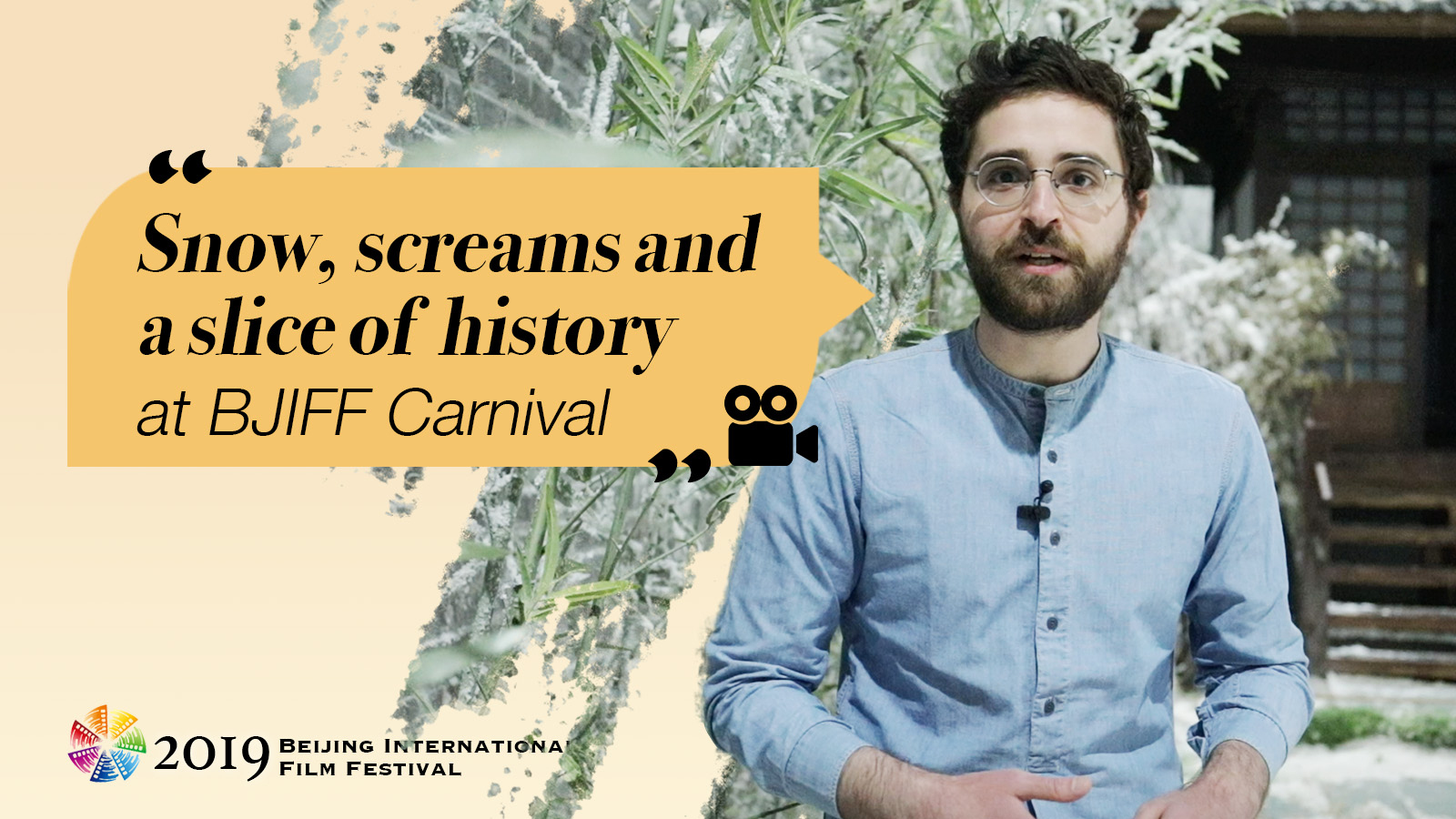
Feathery powder had settled on the roof of the traditional Chinese dwelling, covering the surrounding bamboo shoots. The stone walkway leading to the house's entrance was also dusted with snow, while wild plants jutting out from the rocky walls bent under the weight of snowflakes. The courtyard was a vision in white – but it didn't feel quite right.
It was April in Beijing, and my weather app indicated 26 degrees Celsius.
Was I daydreaming? Or worse, was this a premonition of a post-apocalyptic world where the Sun dies out leaving the Earth to freeze à la "The Wandering Earth"? I was awake alright. I was also on set at a film studio – and nothing around me was what it seemed.
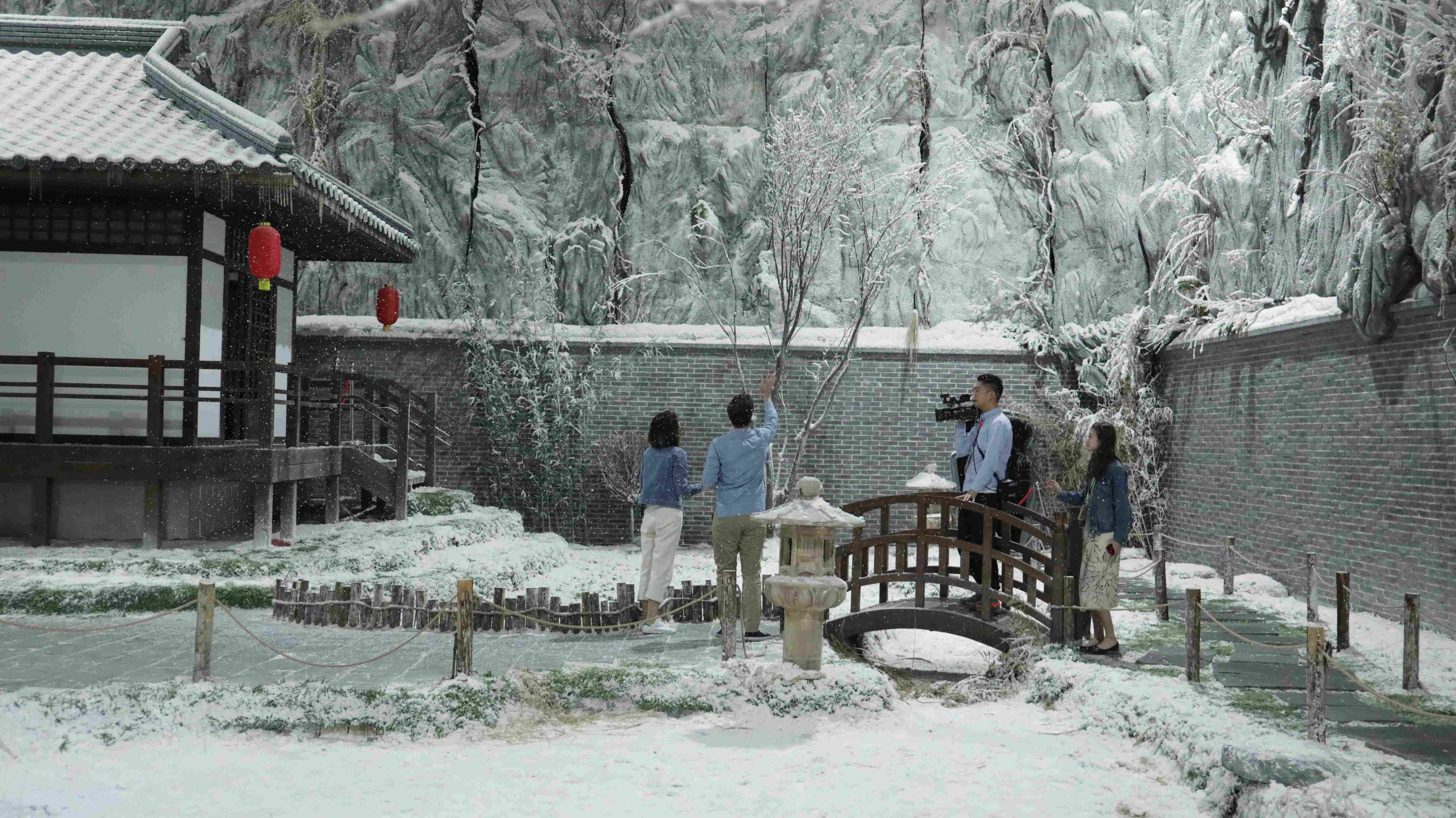
Beijing's spring snowscape. /Photo by Liang Si
Beijing's spring snowscape. /Photo by Liang Si
The plants were plastic, the snow was made of paper and foam, and that frozen lake right outside the house? Plexiglass sheets.
A curious crowd of smartphone-wielding visitors were taking photos of the indoor winter-scape and gasping at how real the white stuff read on camera. For the first time perhaps, they were experiencing the magic of moviemaking – not from the seats of a theater, but from the heart of the action.
As part of the 9th Beijing International Film Festival (BJIFF), the China Film Group opened the doors of its State Production Base outside the Chinese capital to the public. The state-owned enterprise is a heavyweight player in China's entertainment industry, with a portfolio that boasts such big-ticket titles as "The Monkey King" (2014), "Crouching Tiger, Flying Dragon II" (2015) and "The Great Wall" (2016).
Days after Chinese stars and filmmaking mavericks rubbed elbows with international icons at the opening gala of the festival, people of all ages were swarming the site for the Film Carnival.
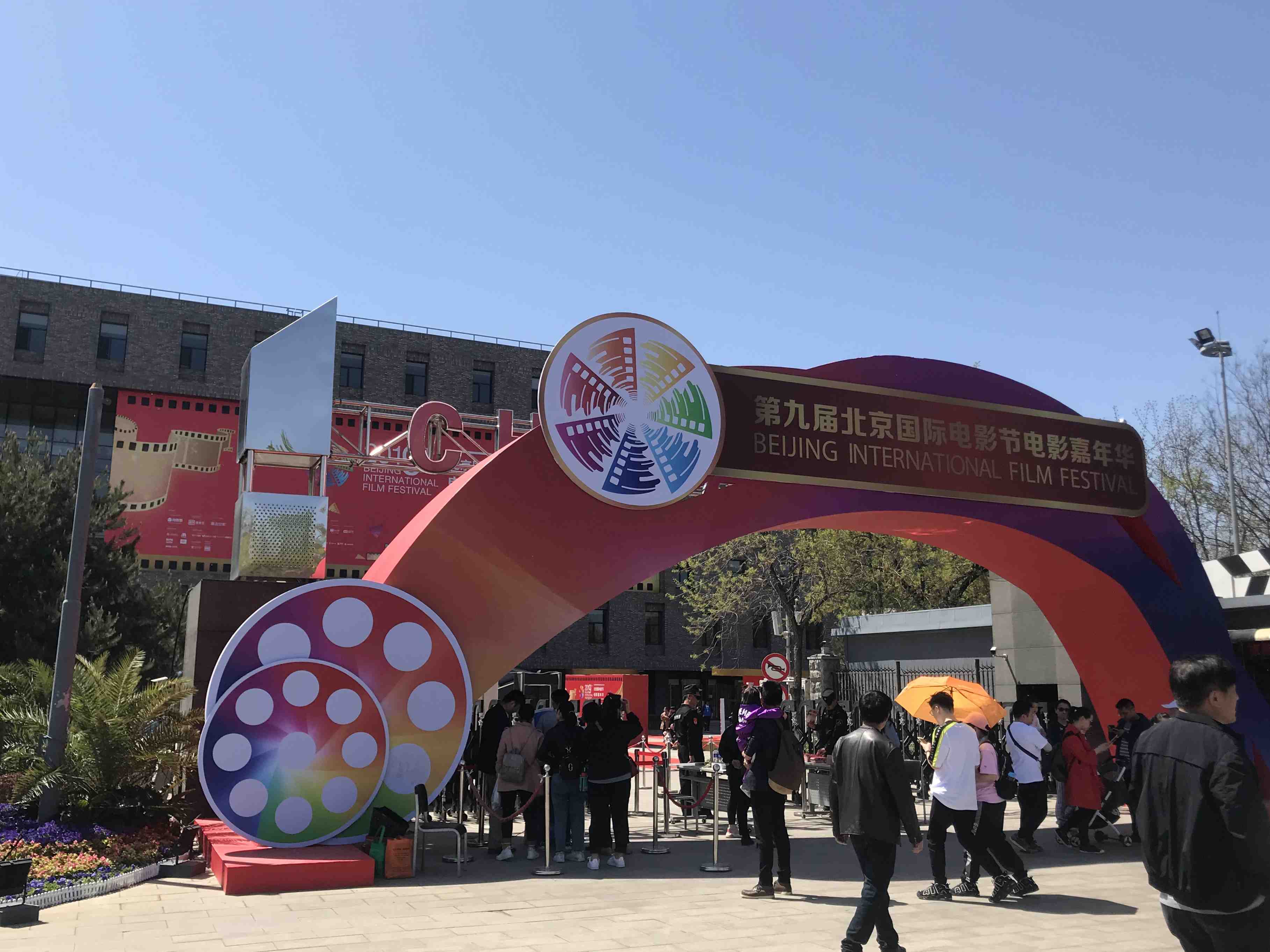
The BJIFF Carnival is in town! /Photo by Zhang Yi
The BJIFF Carnival is in town! /Photo by Zhang Yi
Children were posing next to statues of Po, the clumsy and martial arts-obsessed bear from the Kung Fu Panda trilogy, the Minions and the cast of Zootopia. Meters away, social media-savvy millennials were snapping selfies next to a rainbow-colored tunnel of pinwheels, furiously spinning in windy weather. The inspiration for this installation came from the BJIFF logo, which features the same motif.
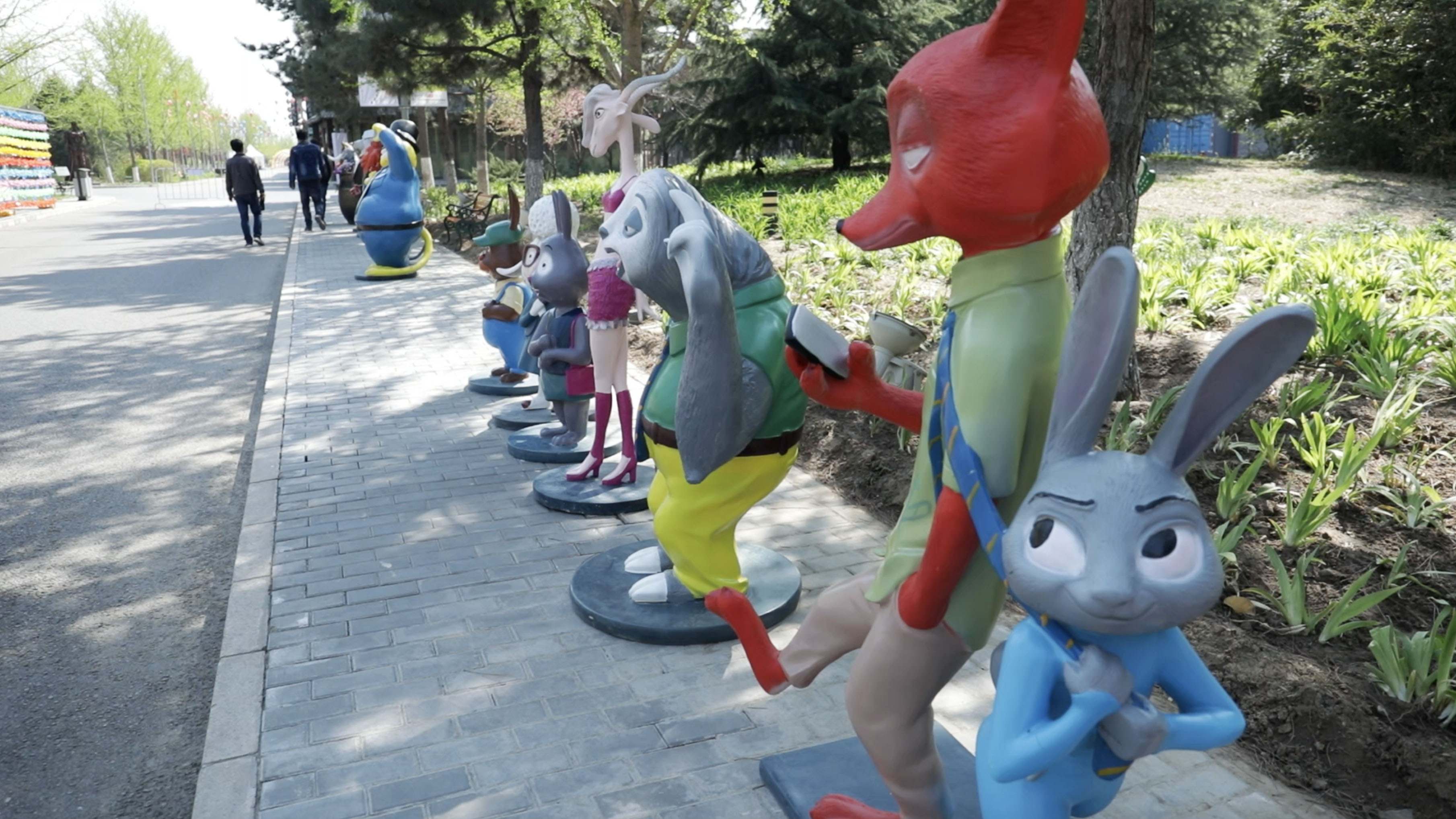
The cast of Zootopia is ready for a meet and greet their Beijing fans. /Photo by Liang Si
The cast of Zootopia is ready for a meet and greet their Beijing fans. /Photo by Liang Si
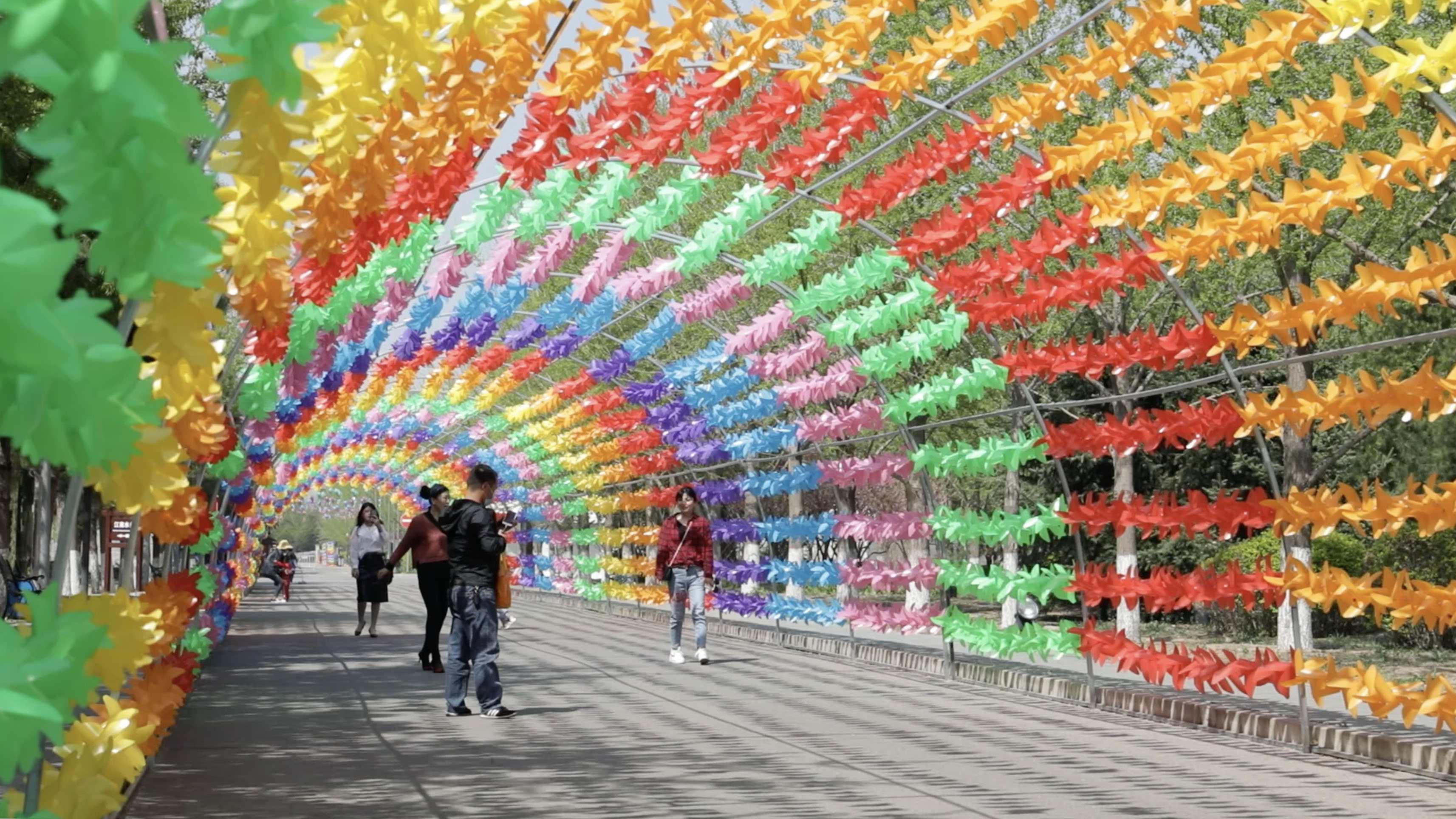
The rainbow tunnel will put your selfie-taking skills to the test. Can you cram all these colors in one frame? /Photo by Liang Si
The rainbow tunnel will put your selfie-taking skills to the test. Can you cram all these colors in one frame? /Photo by Liang Si
But it's not just mindless fun and wandering around aimlessly at the Carnival.
Not far from the colorful passageway, visitors were streaming in and out of dimly-lit stores. But they were not shopping for souvenirs. In fact, nothing inside was on sale, and display items had an emotional value on which you can't put a price tag.
The shops were time capsules that brought patrons back to different eras in China's history – museums of sorts without the rigid character usually associated with such establishments.
Rather than observing the past from a distance, visitors were living the past.
Inside a tea house, white and blue jars and emerald green urns are neatly arranged in a cabinet, covered in dust and cobwebs. At a nearby counter, the "menu" hung from the ceiling. White wooden pieces suspended from a rack were imprinted with the names of tea varieties: Yuhua from Nanjing City, Huangshan Maofeng from Anhui Province and Xihu Longjing from Zhejiang Province. No glossy packages or showy gift boxes, just tea leaves in humble containers.
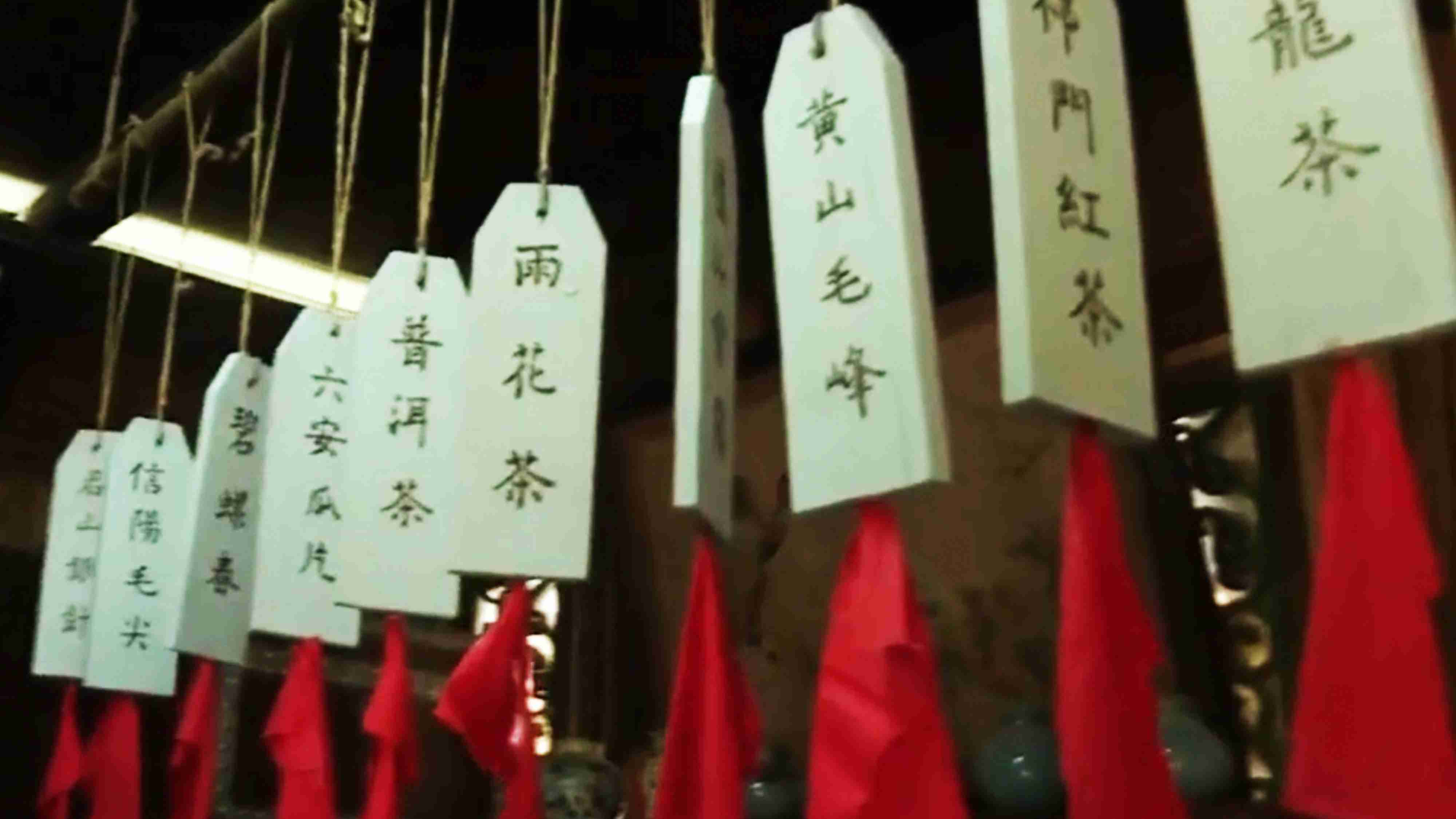
The abundance of tea varieties is in stark contrast to the simple decor of this tea house. /CGTN Photo
The abundance of tea varieties is in stark contrast to the simple decor of this tea house. /CGTN Photo
Next door was a convenience store that seemed to strike a chord with many of the older visitors because of the not-so-distant memories the setting evoked. The retail business was modeled after a typical shop during China's planned economy, when ration coupons were the only way to access pantry essentials and kitchen staples amid food shortages.
Around the corner from the shops, sightseers were treated to a pleasant visual surprise: a life-size replica of a southern Chinese water town – complete with an artificial canal, stone bridges, narrow lanes, and a cluster of wooden houses. I was told this was one of the sets of the 2018 fantasy flick "Monster Hunt 2," starring Tony Leung, whose performance in Wong Kar-wai's "In the Mood for Love" (2000) earned him the Best Actor award at Cannes.
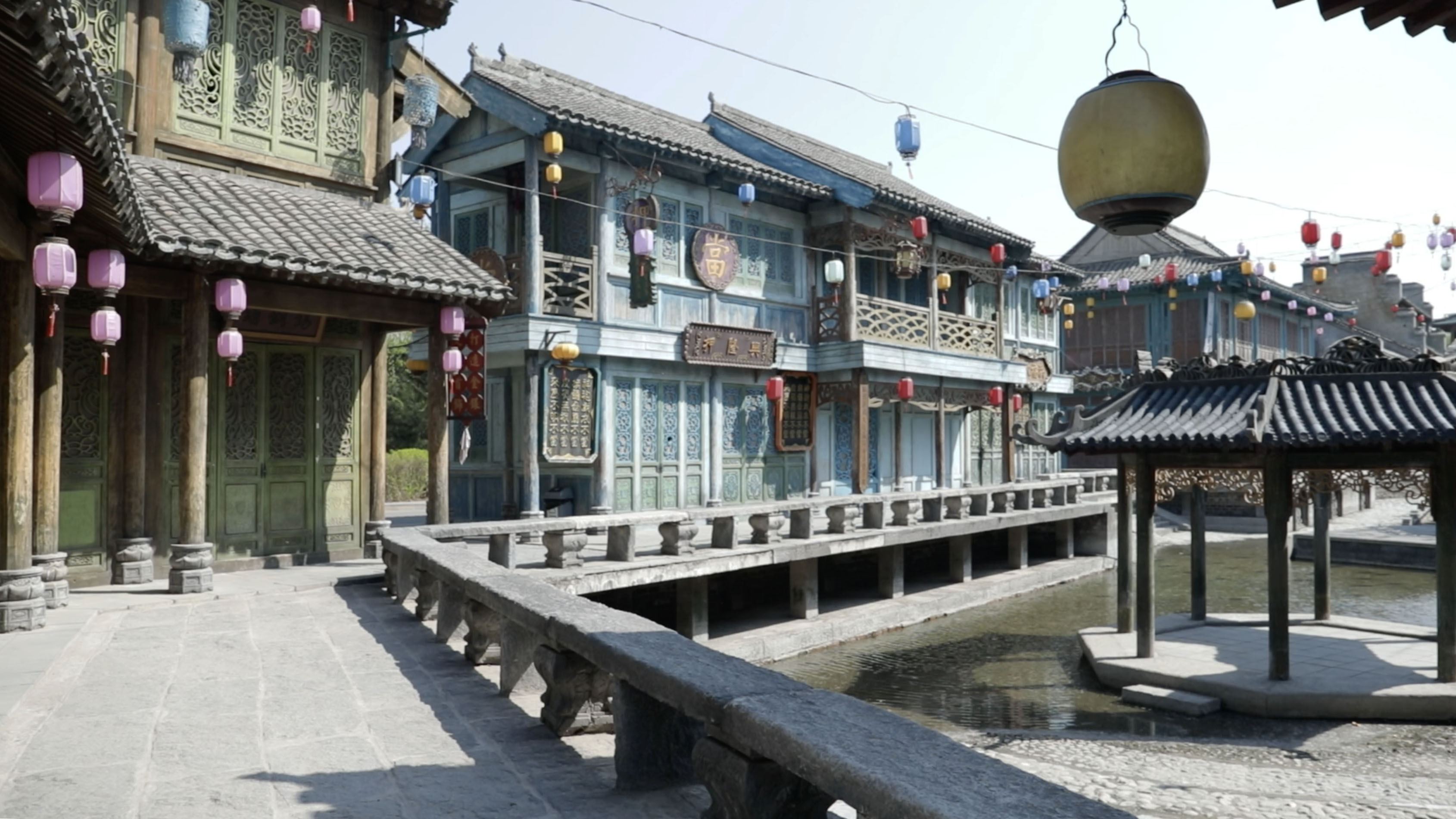
Nothing says Chinese water town more than lanterns and inclined roofs. /Photo by Liang Si
Nothing says Chinese water town more than lanterns and inclined roofs. /Photo by Liang Si
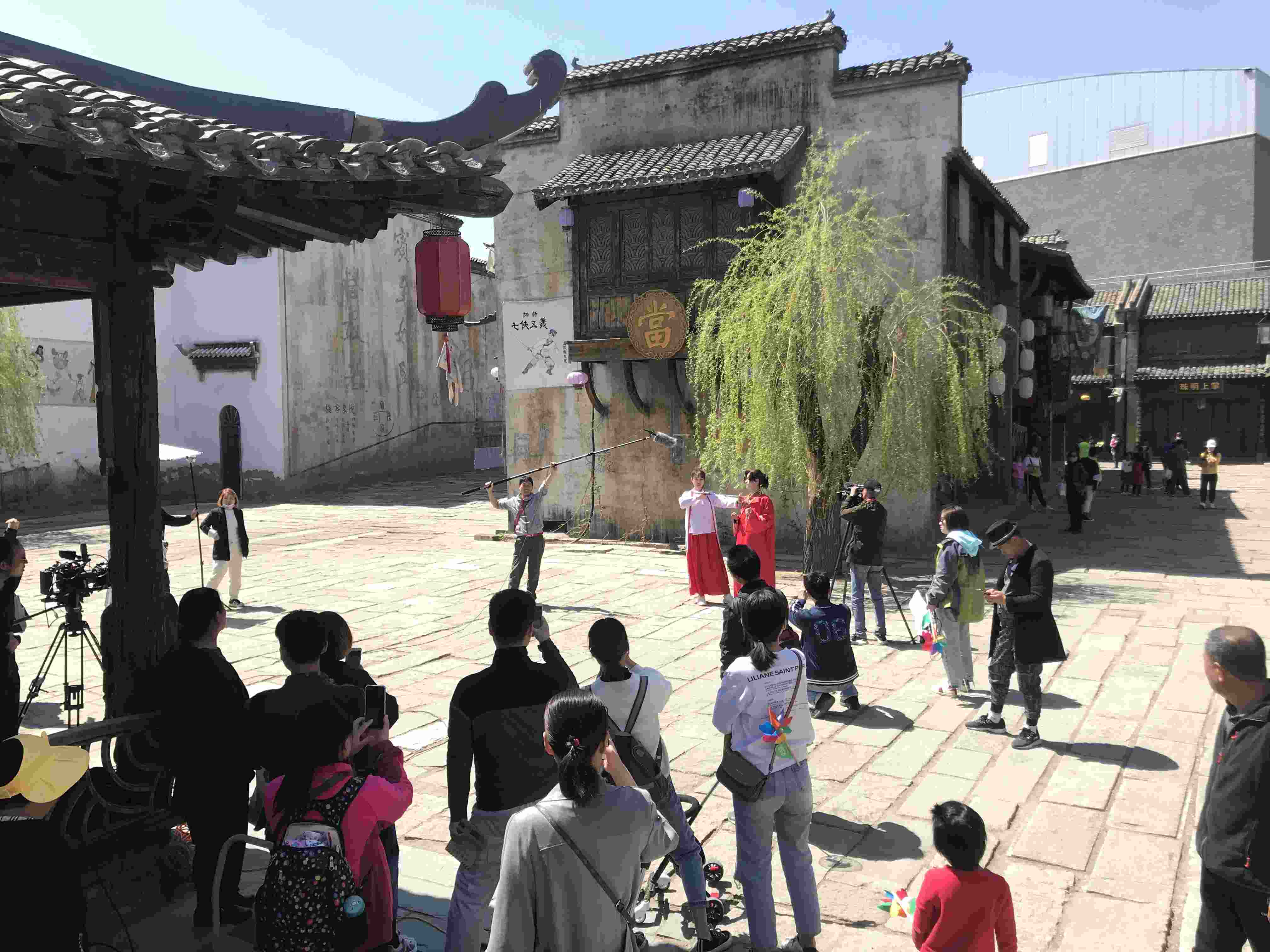
Lights! Camera! Action! /Photo by Zhang Yi
Lights! Camera! Action! /Photo by Zhang Yi
The Carnival also seemed to have warped time. In that open space, past and future converged. As I turned my back to the ancient town and moved further down the road, I got a glimpse of where the present – and arguably the filmmaking craft – is headed. In a nondescript room, I experienced an otherworldly dimension that almost felt real.
The virtual reality (VR) section of the Carnival supplements thrill seekers with a high dose of adrenaline as they undergo immersive experiences that sink their hearts to the pit of their stomachs.
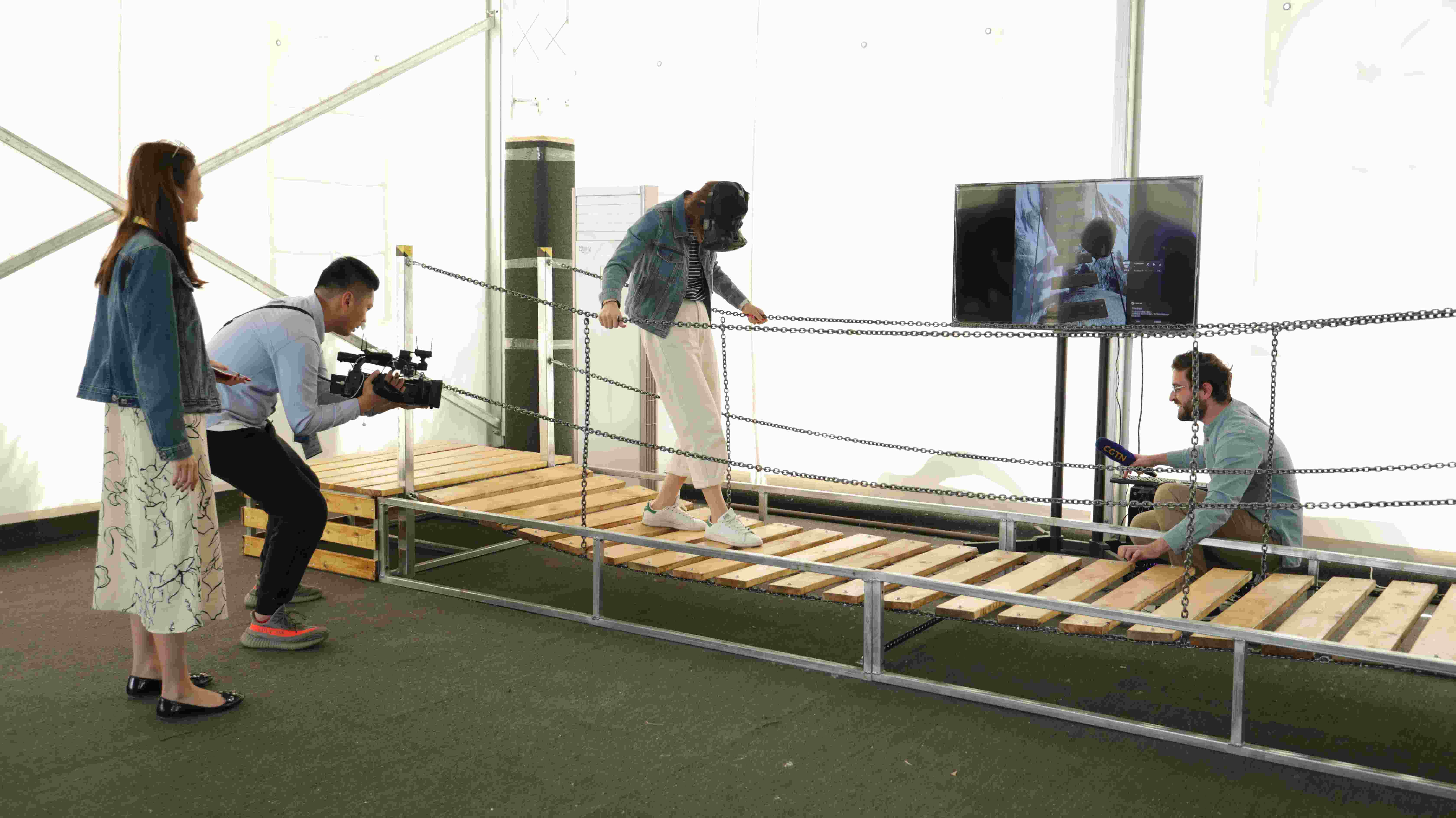
CGTN's Liu Chen faces her acrophobia with the help of VR. /Photo by Liang Si
CGTN's Liu Chen faces her acrophobia with the help of VR. /Photo by Liang Si
Buckling up in a VR chair, I found myself aboard a roller coaster as it pulled upwards, defying gravity. I held my breath in anticipation of what was coming, but nothing could ever prepare me for the ups and downs and twists and turns of the ride.
My seat began to shake, triggering screams, sweat and an instant sense of regret. Rationally, I knew I was not moving, but my mind was convinced that I was racing the wind, navigating steep tracks and sliding down slopes at dangerous speeds.
Such is the power of technology. But long before software developers and engineers were birthing multiple realities within the physical realm, filmmakers were teleporting us to unexpected places and transporting us to worlds that only exist onscreen.

SITEMAP
Copyright © 2018 CGTN. Beijing ICP prepared NO.16065310-3
Copyright © 2018 CGTN. Beijing ICP prepared NO.16065310-3